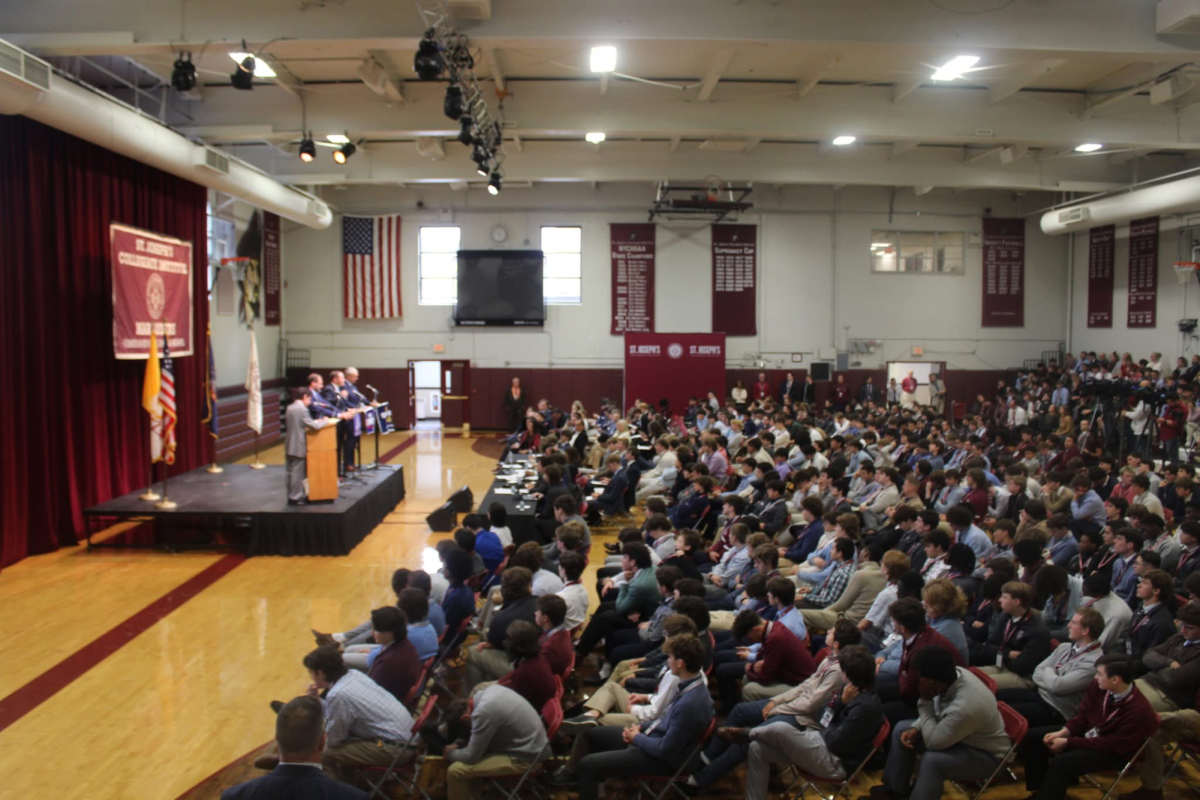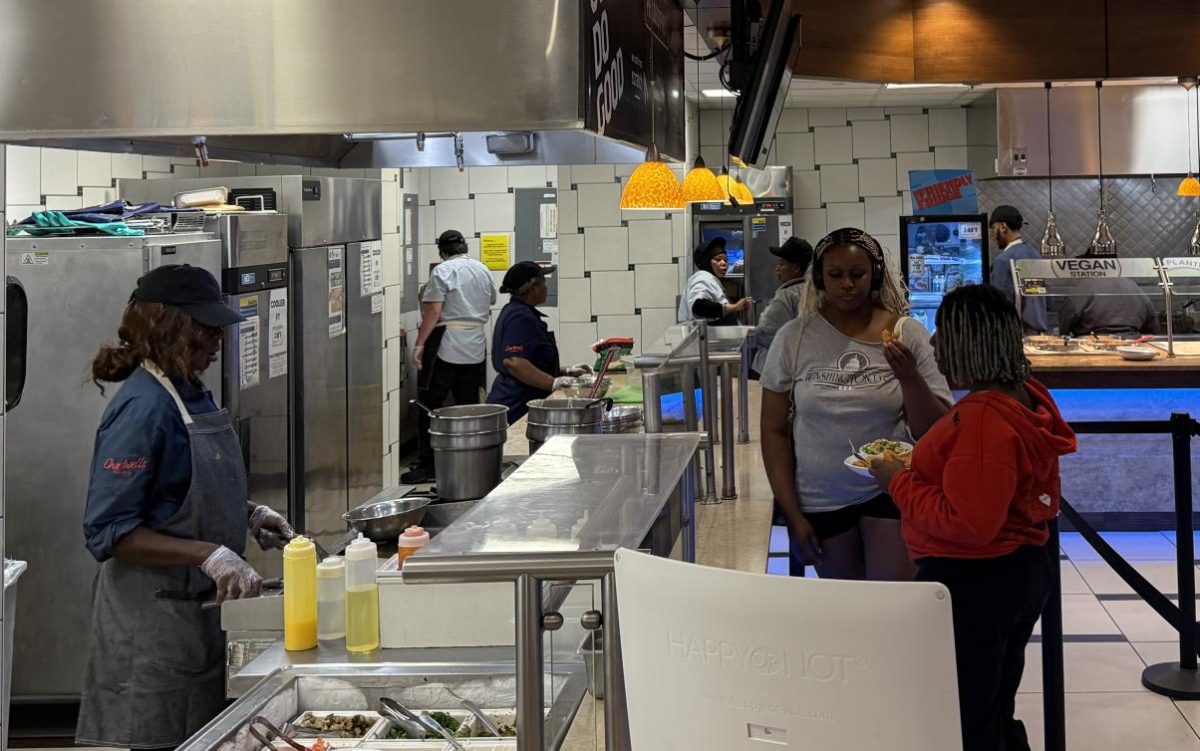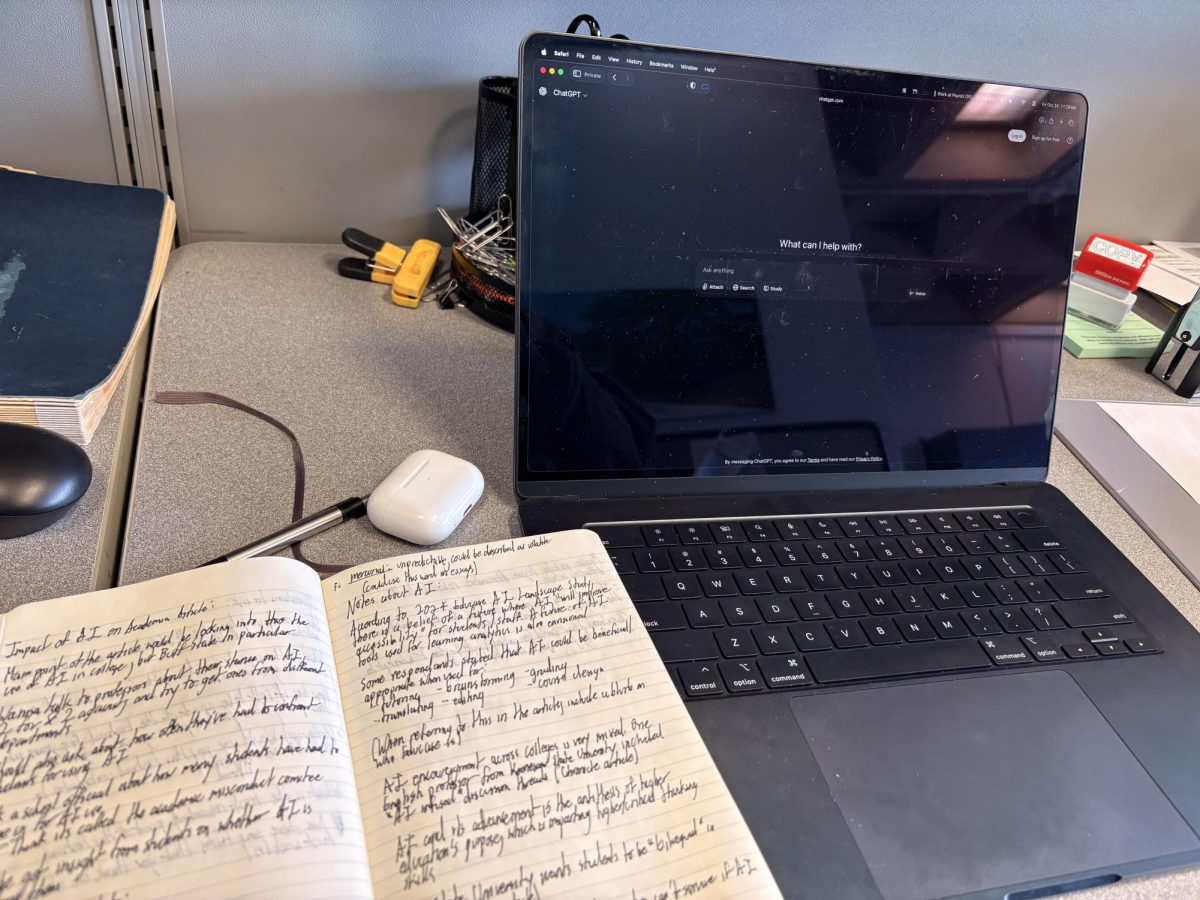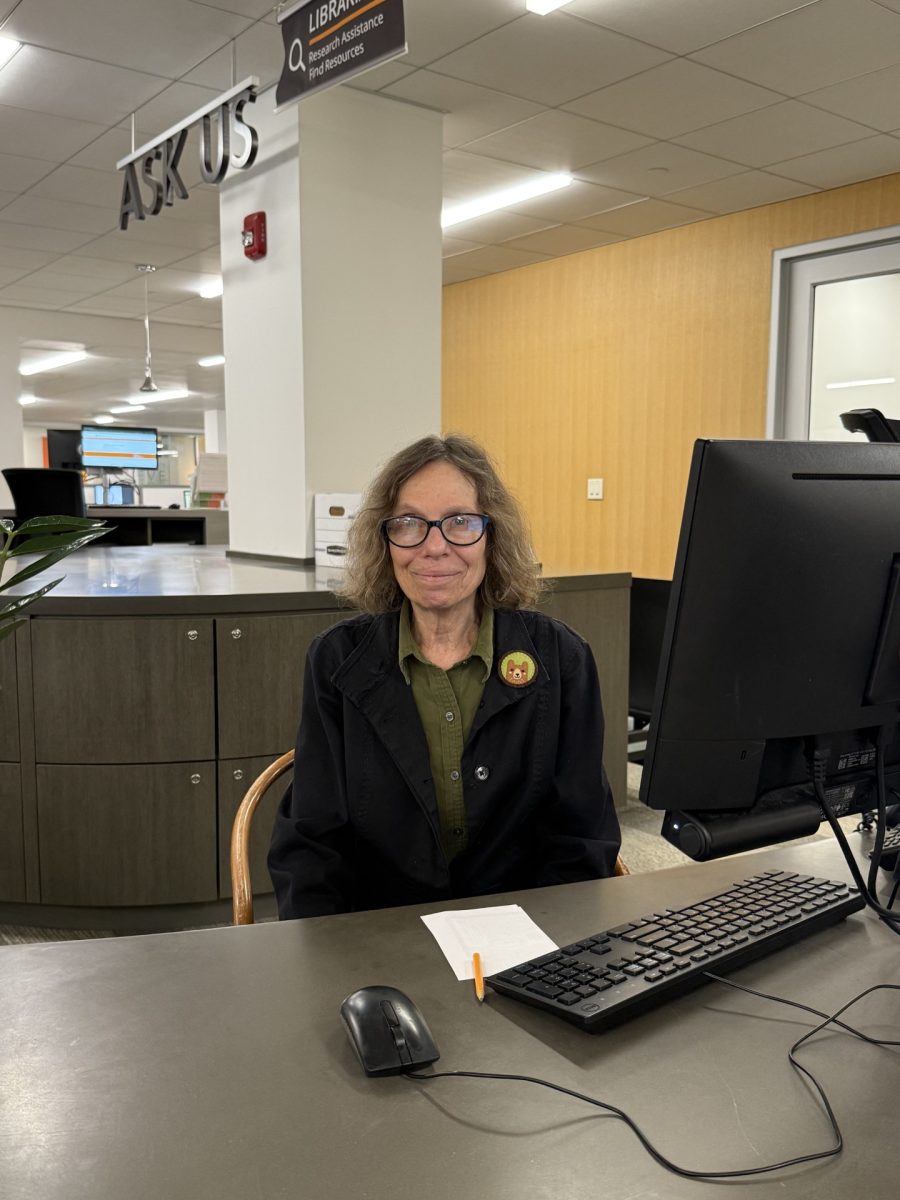
James Beard Award-winning food writer Kim Foster arrived at Buffalo State Nov 14 to host a lecture in the Bulger Communication Center, where Buff State students and local Buffalo residents alike were able to hear the author speak about her most recent book, “The Meth Lunches: Food and Longing in an American City.”
Foster is a writer/blogger known for touching on a multitude of issues, chief among them being food and how it can be related to problems plaguing our culture such as poverty, addiction, mental illness, and family separation.
In “The Meth Lunches”, Foster analyzes the problem of hunger through her own personal experiences while living in Las Vegas. The subject matter of this book formed the basis of her lecture.
Foster began by discussing a specific event in her life that inspired her to write the book, which was an experience she had hiring someone to work on her house in Las Vegas.
The worker, named Charlie, would work in their backyard in the blistering Vegas heat for hours on end. Foster would invite him to eat lunch with her family while he worked, and they struck up conversation and become more aquatinted with one another.
“We just start talking,” Foster says. “He starts talking about his family, his wife Tessie and his five kids. He tells up about his upbringing, his business, he was a very skilled guy. Eventually you just start thinking ‘why is this guy at the day labor’s office when he had his own business?’
“Then one day I walked out to the backyard and found him hunched over sobbing. I asked him if he was ok, and he said, ‘I regret everything.’”
As it turned out, Charlie was hooked on narcotics and lost his children to CPS.
Foster used this revelation as a way to speak of food as a “way in” to understanding someone on a much deeper level.
“Lunch is the way in,” she said. “Food is the way in, and this is something I feel very strongly about. We would have never known what he was going through had we not invited him to our lunches. Sometimes, when we eat together, it brings a closeness that is awkward and uncomfortable. It slows you down. It gets people to reveal to feel complicated feelings they may be having. In Charlie’s case, eating with us made him think of his kids for the first time in months, and he remembered what he lost.”
Foster continues, talking about the times she taught Charlie how to cook, showing that cooking food with others can also be a gateway into new feelings.
“As Charlie was getting clean and trying to stay that way, he would ask me to teach him how to cook,” said Foster. “The cooking we did became really important to him, because it connected him to this world of other people who cooks their own breakfasts and dinners. It symbolized health to him, and a way to be apart of the world. When you are addicted, you are pushed aside. You’re not part of the same world as everyone else. You are on your own. So the act of eating together and the act of cooking, this was all very transformational for him.”
Charlie is currently living with his wife in a home they bought last year and has a seven year old daughter in school.

While food can be used a positive force as seen in Charlie’s story, Foster also showcases how it can be a curse as well.
“Just as we are comforted by food, food can also be used against us,’ said Foster. “One time this woman named Johnnie is cashing me out at the supermarket. As she’s cashing my stuff out, I’m talking with her about food I don’t really like, and she says, ‘Oh, I don’t really like that either.'”
“But then she says, “Well, I have a lot of food issues, because when I was little, my mom locked me in the closet and starved me.’ It really struck me to say such an intimate thing in such a public space.”
After hearing this, Foster would invite Johnnie for coffee, where she learned more about her life. Johnnie detailed her experience living in a dysfunctional household, including the times she would sneak her childhood dog into the closet, break a milk bone in two, and give the larger half to the dog.
“She felt that she loved this dog so much, she would starve for this dog,” Foster said. “So when you are deprived of food, starvation becomes love.”
The last experience Foster touched on in her lecture was her involvement with running a food pantry during the early days of COVID. She explained its humble beginnings, which involved her leaving out any excess materials she had bought into a free library so her neighbors could take some.
Word spread, and with the help of the news showcasing her actions, people lined up their cars down the neighborhood to get some help. She showed how making food and giving it out to people was able to strengthen a community in difficult times.
“We were making homemade food and people [would] pick it up in their cars,” said Foster. “This was a response to the fact that a lot of the families that were getting food boxes from the government were getting the same foods every time. They were getting the same meatballs and taco meat and eventually they just had enough of it.”
“So, we decided to a thing called ‘Pantry Days’, where we created a list of things for the neighborhood. It would be stuff like spices, just things that would make things easier. We were doing cooking demos, eviction protection, really just trying to be as expansive as we could.”
She ended her lecture with one final statement.
“Everybody wants to end child hunger. But child hunger is the problem because it’s something you can solve by giving a plate of food. Hunger is a problem, but it is a byproduct of a bigger system. We shouldn’t be looking at ending hunger, we should be looking at ending poverty.”
Kim Foster is continuing to do book tours until next July, and her book is available for purchase now. Foster also writes a weekly Substack where she speaks about these issues called “The Dysfunction of Food.”








